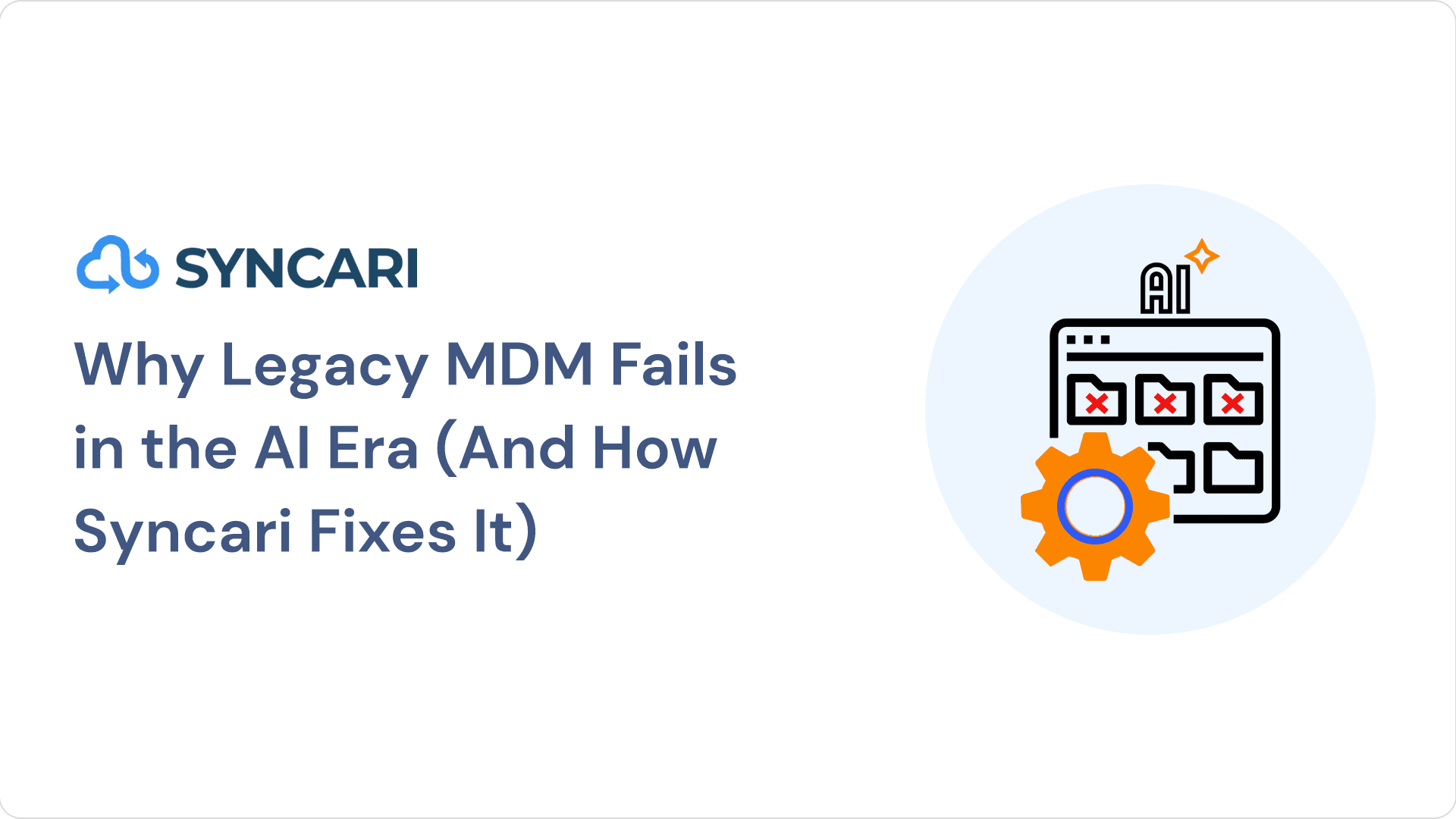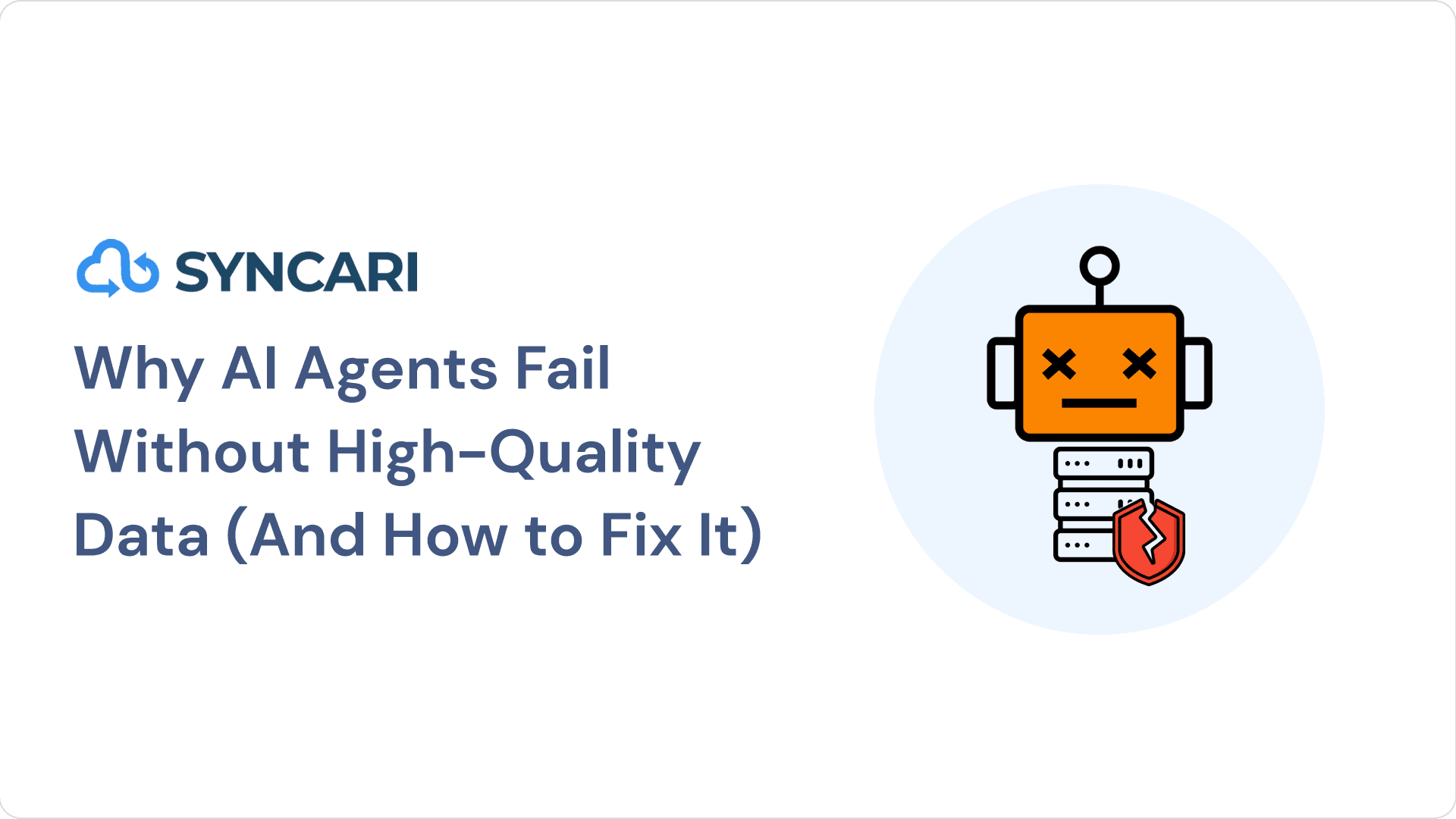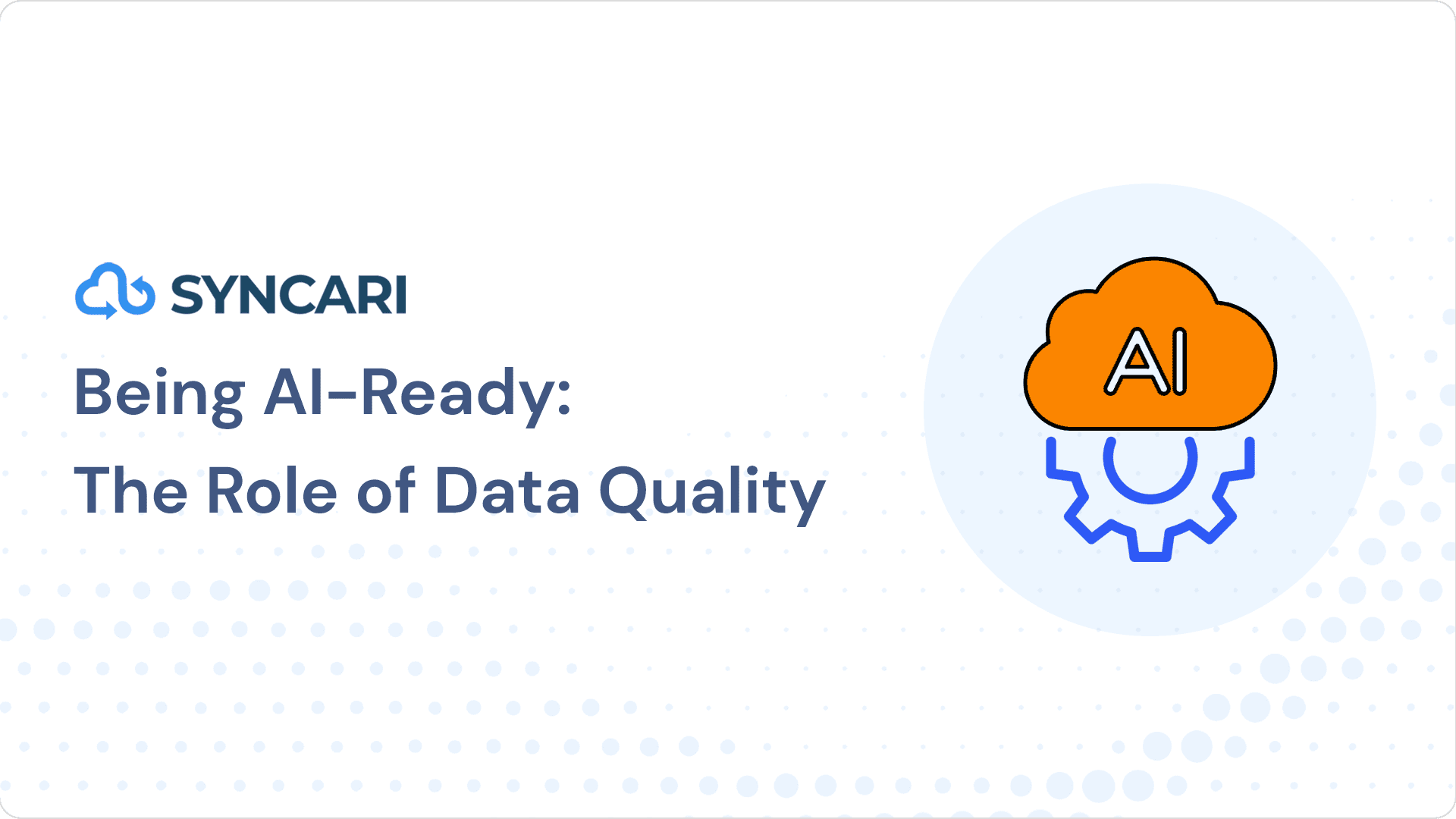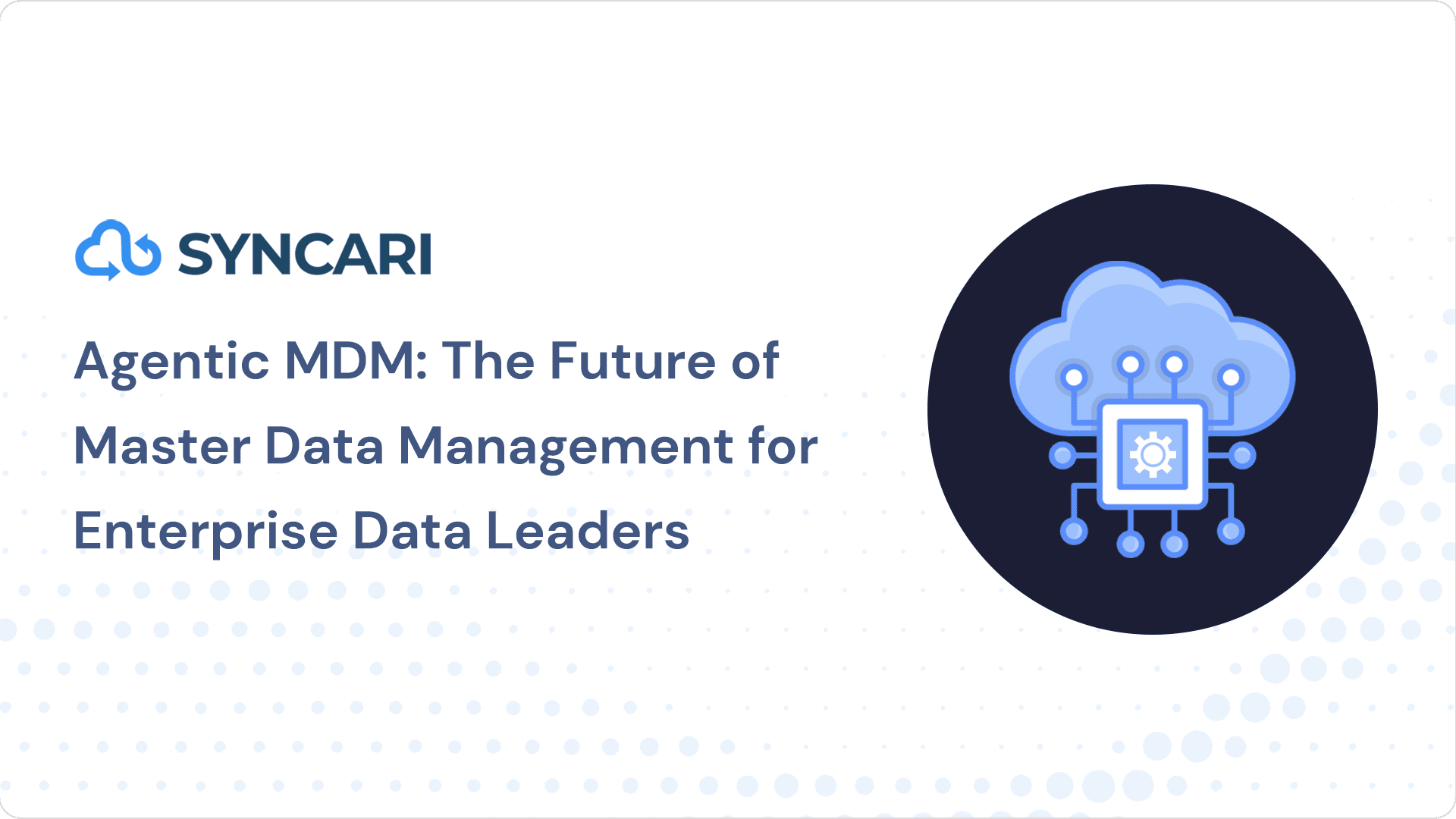“I know when to admit I can’t do something — my strengths aren’t diminished by highlighting yours. The great work begins when we stop pretending we’re experts at everything,” Leorre Fishman says. In a world of generalists and jacks-of-all-trades, Leorre, the VP of Revenue Operations at Uberflip, is building a different kind of team. At the Netflix for content for B2B marketers, her team is made up of refreshingly honest and failure-positive Ops pros who work to their strengths, complementing each other in the process. And she’s convinced you can build your own high-performing, kickass team, no matter the function.
I sat down with Leorre this week to discuss how the world of operations has changed for the better and why she builds failure into every plan.
This interview has been edited for brevity.
Nick Bonfiglio: How are you building a resilient RevOps team?
Leorre: I don’t want clones of me. I don’t even want clones of our top performers. I’ve seen firsthand the value of strengths-based leadership. I’m not afraid to admit that something doesn’t fall within my strengths. In the same way, I’m building teams that complement each other. Not everyone in RevOps has to be an expert in forecasting, data visualization, and every minute operational task. We can rely on one another to play to our strengths, creating great work through collaboration. As a result, we’re able to get more done, more accurately, and have a lot more fun doing it. When you work to your strengths, you get more shit done.
How has the world of operations changed?
There has always been a status quo. When I started out there were a few things I’m glad are gone now:
- Operations roles were rigid and very male-dominated.
- There was a singular focus on metrics and forecasting.
- We didn’t have the ear of our executive teams.
- Innovation wasn’t a priority in task-oriented operations roles.
It’s a completely different world now. We have more opportunities to flex our creative muscles and develop unique approaches to data, technology, and processes. RevOps is the vehicle that drives all GTM strategy and enables all functions to work together seamlessly. We have more opportunities to influence our leaders — and lead teams of our own. It’s no longer a bunch of guys in suits and I think that’s incredible.
You made the switch from the retail industry to tech. Was the transition difficult?
No, it felt natural. The truth is: Every role has a bit of Ops in it. You have to care about the way the engine works to be really good at your job — from sales to CX, from intern to executive. I’ve always applied the Ops mindset to the way I work. So when the current SVP of Revenue at Uberflip called me to help him transform Uberflip’s sales strategy, I was thrilled. I’m the kind of leader that’s obsessed with the mess of it all. I took my ‘Ops broom’ and I cleaned sales and customer success (laughs). Now in RevOps, I scrub every function and build process and enablement that supports all our Uberflippers.
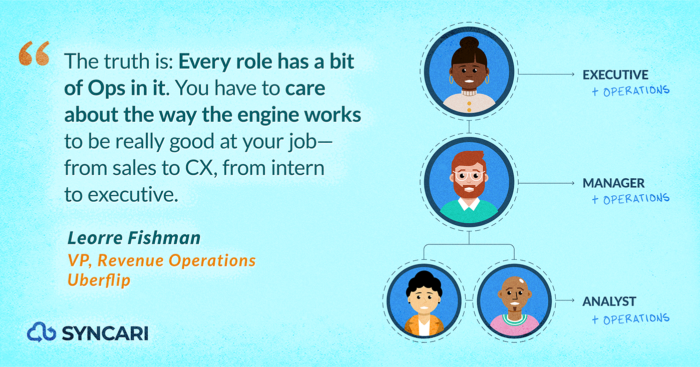
Good processes rely on people. How do you earn buy-in from every function?
You’re right. People and processes need to be at the core of everything we do or it’s not worth doing. My approach requires three steps: sharing the vision, getting the details, and closing the loop.
- Start with the end in mind. Your sales, marketing, success, and finance partners must know what you’re trying to accomplish. Period. They have to see how it helps them. Tell them your goal is to make their lives easier, eliminate a few hours of weekly admin work, or just give them more joy in their job. If you share the desired outcome, people are more likely to help you move towards it.
- Don’t be afraid to get in the weeds with folks. Study them like you’re a sociologist and don’t make assumptions about what people need. Assume you don’t know. Conduct interviews and allow them to tell you areas of inefficiencies, or things that bother them. Take their suggestions seriously and validate your changes. Ask yourself, “Did I actually help?”
- Let people know that their feedback mattered. Oftentimes, we gather feedback but we don’t close the loop — we don’t share how our colleagues’ feedback influenced a new process or helped us solve a recurring problem. Sharing results makes people feel heard and valued, which makes them more likely to share honest feedback in the future.
Do that repeatedly and that’s how you earn buy-in from the beginning.
How do you handle when a project fails?
Ops leaders are obsessed with perfection. We have to learn to be satisfied with progress and put perfection on the backburner. Failure, unfortunately, is inevitable — we won’t deliver on time, the technology will fall apart, or the team won’t adopt a new process. So when we face failures, as everyone does, we should have a plan in place from the start. When putting together projects, anticipate the risks and how to solve for issues that may arise. Allow yourself to indulge in worst-case scenarios for the sole purpose of planning for how you would handle them.
When we fail, we reflect on how things fell apart — with transparency and honesty — and then we figure out how we can move forward. We didn’t get where we are today by getting it right every time. We gain our most valuable lessons from those difficult moments.
As a leader, it’s not easy to embrace failure. But you cannot expect your team to speak openly about their mistakes unless you’re modeling that transparency. If you emphasize progress over perfection, plan for failure, and leave room for learning together, your team will follow you into the fire.
What are you reading, watching, and listening to right now?
I love acquiring random knowledge. When I’m not at work, I want to learn about the world — different cultures, people, and technology. That’s what keeps me sharp. The last podcast I listened to was about Mesoamerican culture. I just finished The Customer Success Professional’s Handbook by Ashvin Vaidyanathan. I was diving deep into customer success research — trying to understand the motion and best practices. I also watch Jeopardy daily. It’s my favorite show. Rest in peace, Alex Trebek.
Want to connect with Leorre? Follow her on LinkedIn.
